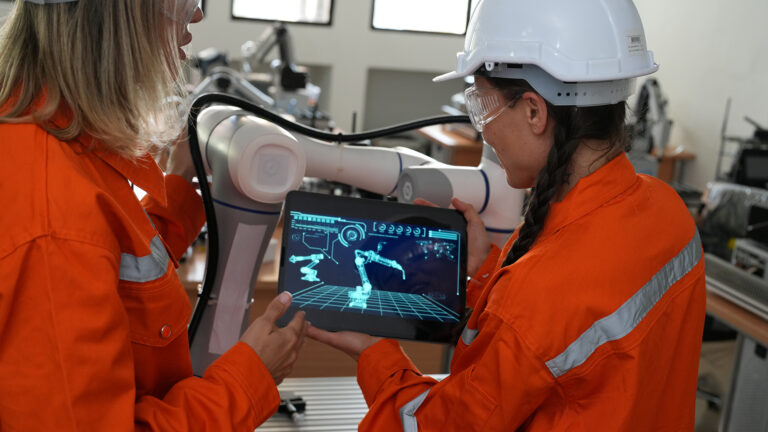An uninterruptible power supply (UPS) is a device that provides backup power to electronic equipment in the event of a power outage or interruption. It acts as a protection system that provides temporary power until the permanent source, such as a generator or the power grid, is restored.
What is the purpose of the UPS system?
Its main objectives are twofold: to provide backup power as quickly as possible when there is a loss of supply and to offer a degree of protection against power quality problems that can damage equipment.
Depending on their design and characteristics, systems can meet these objectives to varying degrees.
What are power quality problems?
Power quality refers to the adequacy of a power supply in terms of voltage, frequency and waveform.
Electrical equipment is designed to use electrical power with certain characteristics, such as 12 or 24 volts, or, when designed for alternating current, 50 or 60 hertz frequency. Similarly, the power supplied by the grid (or some other source such as a generator or battery bank) was configured to meet a certain voltage or frequency level.
Typical problems associated with power quality include:
- Interruption of power supply.
- Voltage drop/undervoltage.
- Voltage increase/overvoltage.
- Transients/surges/surges.
- Noise.
- Harmonic distortion.
In which cases is it essential to protect the power supply?
In countries located in a region prone to hurricanes and other weather events (such as the Dominican Republic or Puerto Rico), having a UPS system is especially important because these inclement weather events pose a risk to the power grid.
In addition, because UPS protects equipment, it is suitable for any situation where electrical loads may be sensitive to power loss or other power quality problems. For example, UPS systems are commonly used for computers and servers, as loss of power can lead to data loss or component damage.
Also, different types of medical and laboratory equipment are sensitive to these failures. In many facilities in developing countries, the power grid is unreliable or of poor quality, resulting in scheduled or unscheduled power losses for much of the day, generating downtime that affects the quality and availability of critical services.

Types of UPS systems
Depending on the power quality problems they solve, three types of uninterruptible power supply systems are used
Double conversion or on-line UPS
It is the most advanced and reliable type of UPS. This system provides full and constant protection by supplying electrical power through its internal inverter. Mains power is converted into direct current and then converted back into alternating current, ensuring fluctuation-free power quality. In the event of a power outage, the double-conversion UPS system uses its internal battery to continue supplying power without interruption.
Standby or off-line UPS
This is a type of UPS that operates on standby, constantly monitoring the quality of the electrical power coming from the grid. In the event of a power failure, the system quickly activates an internal battery to provide backup power to the connected devices.
Interactive UPS
It offers more advanced protection than the standby UPS. This system actively monitors and regulates the quality of mains power, with an automatic voltage regulator (AVR) to stabilize voltage fluctuations. In the event of a power outage, this system uses its internal battery to provide uninterrupted backup power.
Key technology to ensure mission-critical operations
UPSs play a critical role in areas prone to adverse weather events and where grid reliability is limited.
By guaranteeing a constant and reliable power supply, UPS systems help maintain the operability of critical equipment and safeguard data integrity. They are the key to protecting electronic devices and ensuring the continuity of mission-critical operations in electrically challenged environments.



